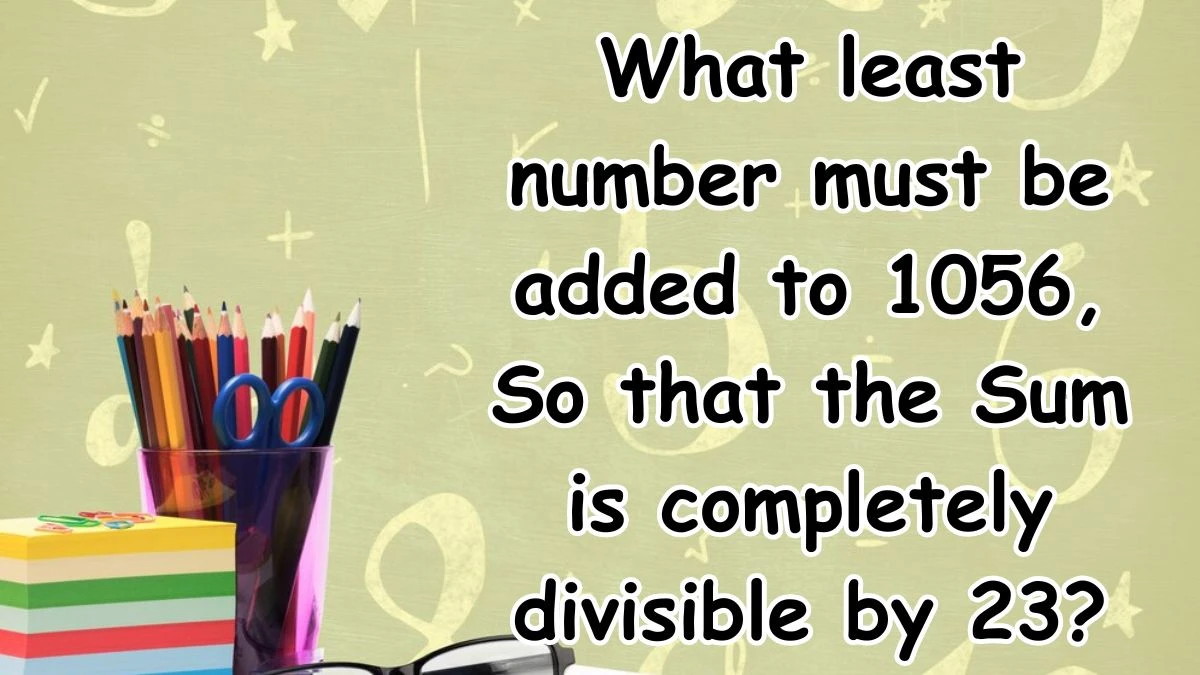What least number must be added to 1056, So that the Sum is completely divisible by 23?
by
Updated Jun 27, 2024

What least number must be added to 1056, So that the Sum is completely divisible by 23?
To find the least number that must be added to 1056 so that the sum is completely divisible by 23, follow these steps.
We need to find a number x such that 1056 + x is divisible by 23.
According to the division formula,
Dividend = Quotient x Divisor + Remainder
When 1056 is divided by 23, we get a remainder of 21
To make 1056 + x divisible by 23, x should be such that when added to 1056, the remainder becomes 0 when divided by 23.
Since the remainder when 1056 is divided by 23 is 21, x should be
23 − 21 = 2
Add 2 to 1056 to get the number that is divisible by 23
1056 + 2 = 1058
Now, divide 1058 by 23 to verify
1058 ÷ 23 = 46 with remainder 0
Therefore, the least number that must be added to 1056 so that the sum is completely divisible by 23 is 2.
Divisibility in Number Theory
Divisibility plays a crucial role in number theory, which is the branch of mathematics that deals with properties and relationships of numbers. It helps in classifying numbers into categories based on their divisors and exploring patterns in arithmetic sequences. Divisibility is a fundamental concept in mathematics that determines whether one number can be divided evenly by another without leaving a remainder. It is expressed in terms of a division statement where the remainder is zero.
Finding Required Numbers:
In problem-solving, especially in number theory and arithmetic, questions often ask for the smallest or least number that must be added to or subtracted from a given number to make it divisible by another number. This involves understanding remainders and how they relate to the properties of numbers.
Learning about divisibility rules and techniques enhances mathematical reasoning and problem-solving skills. It provides a foundation for understanding more complex mathematical concepts and their applications in various fields.
Application in Algorithms:
Divisibility rules are practical in computer science and cryptography. Algorithms often use divisibility tests to efficiently perform operations like prime number identification, factorization, and encryption processes. Divisibility concepts also reinforce basic arithmetic operations such as addition, subtraction, multiplication, and division. They involve understanding ratios, fractions, and modular arithmetic, which are essential for analyzing numerical relationships and making informed decisions.




